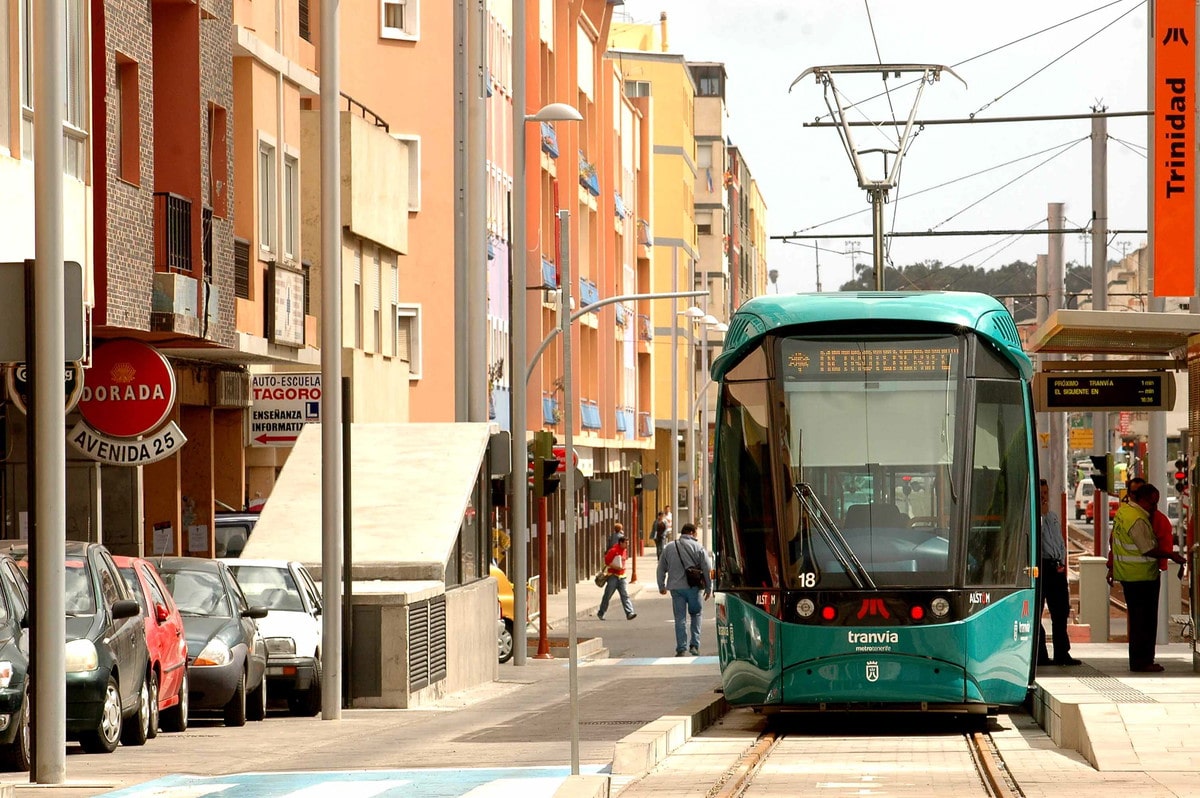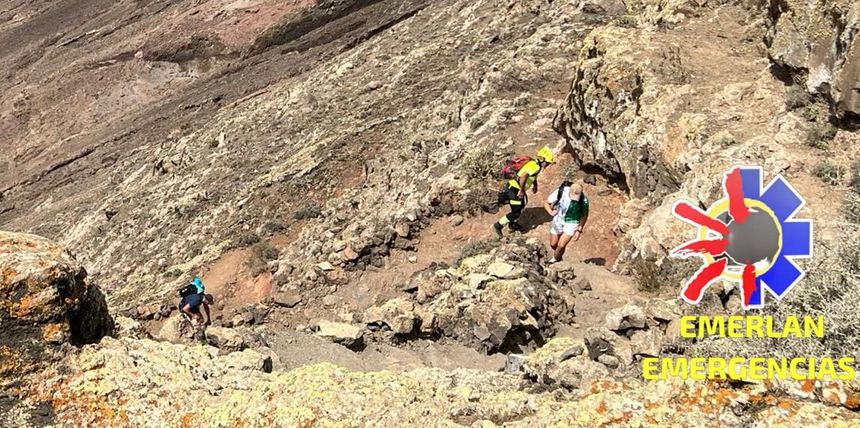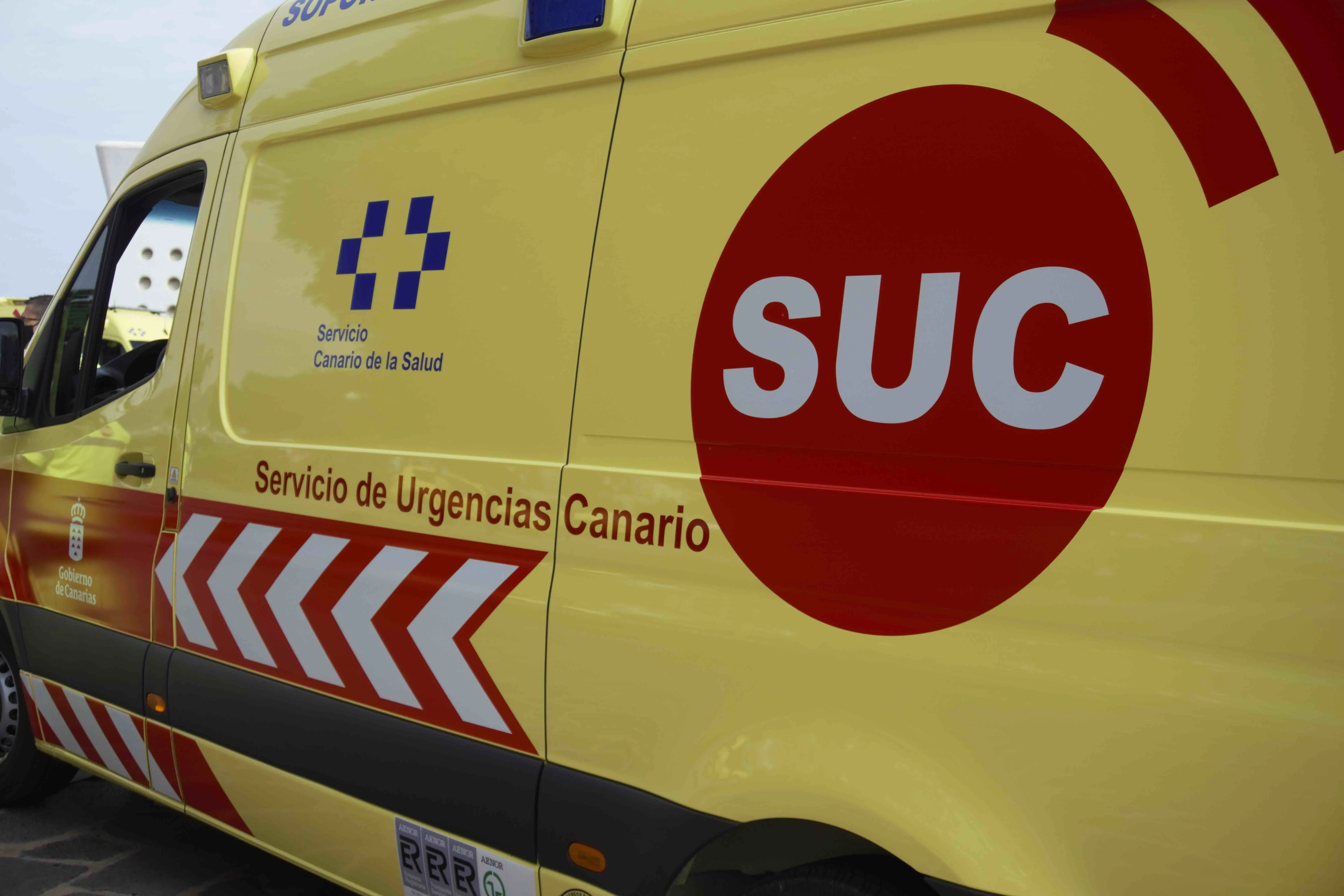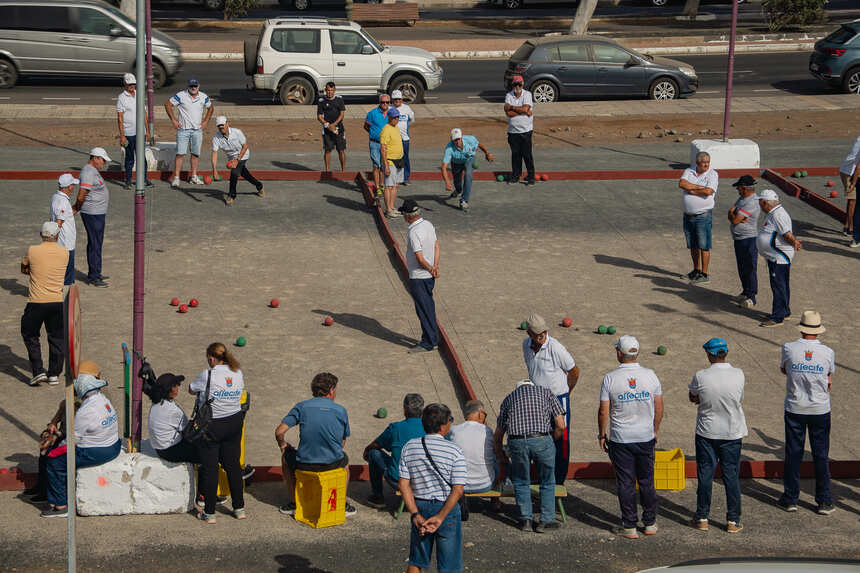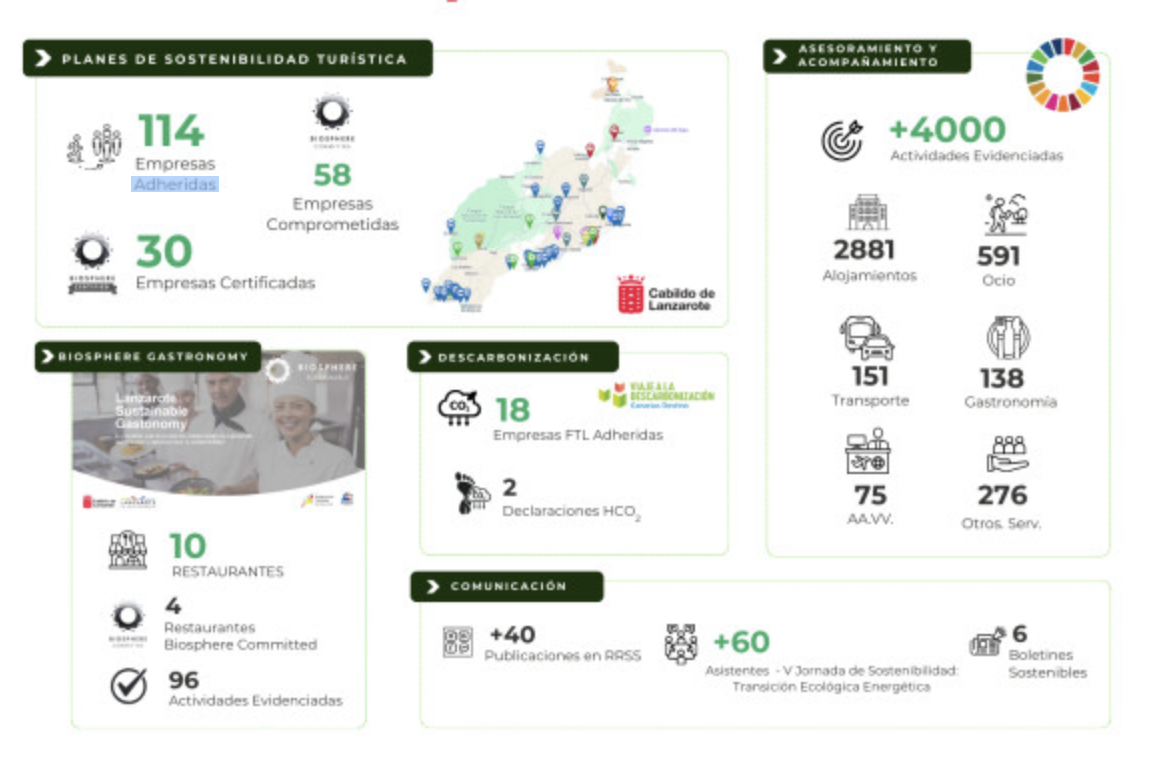
During the first half of 2025, the Lanzarote Tourism Federation has reinforced its commitment to sustainability by incorporating 14 new companies into the Sustainable Tourism Plans. The total number of participating companies now stands at 114. Additionally, the number of Biosphere-certified businesses has increased, reaching 30, reflecting the sector’s growing commitment to transitioning towards a more responsible tourism model.
“This growth demonstrates that companies are recognising sustainability as a factor of competitiveness and differentiation. It is a path towards the future that guarantees the strength of our destination,” highlighted FTL President Susana Pérez.
The Sustainable Tourism Plans represent an initiative spearheaded and developed by the Lanzarote Tourism Federation, with backing and funding from the Cabildo of Lanzarote, and in alignment with the Sustainable Tourism Strategy for Lanzarote. Since their implementation, participating companies have executed over 4,000 actions aligned with the Sustainable Development Goals (SDGs). The majority of these activities relate to the accommodation sector (2,881) and leisure offerings (591), followed by transport (151), gastronomy (138), travel agencies (75), and other services (276).
These initiatives encompass three fundamental areas – environmental, social, and economic – and reflect the sector’s commitment to a more responsible, inclusive, and competitive tourism model, benefitting both the territory and the local community.
ENVIRONMENTAL ASPECT
In collaboration with tourism companies advised by the Lanzarote Tourism Federation, actions have been developed to reduce the environmental impact of the sector. Notable among these are the promotion of efficient water use, the installation of reuse systems, improvements in energy efficiency, and proper waste management through recycling practices and reduction. These measures align with SDGs 6, 7, and 13.
SOCIAL ASPECT
Companies working on their sustainability plans with the Federation promote the employment integration of vulnerable groups, family reconciliation, and carry out solidarity campaigns, such as toy collections for children. Environmental awareness actions and conservation initiatives are also developed, contributing to SDGs 3, 5, 10, and 11.
ECONOMIC ASPECT
From an economic perspective, a responsible and competitive tourism model is supported, fostering the consumption of local products, supporting SMEs, reducing food waste, and creating jobs. All this is undertaken with the technical support of the Federation and in line with SDGs 8, 9, and 12.
JOURNEY TO DECARBONISATION
Currently, 18 companies are participating in the Canary Islands’ carbon footprint declaration tool, “Journey to Decarbonisation,” and the first two official declarations have been submitted, marking progress in the energy transition and decarbonisation processes of the destination.
During this first semester, communication and awareness actions included monthly newsletters and over 40 social media posts. The Fifth Sustainability Forum, held in February, attracted more than 60 participants to propose, share ideas, and seek solutions to topics related to ecological and energy transition in the Canary territory, with a special focus on the islands of Lanzarote and La Graciosa.
FTL President Susana Pérez reaffirmed that the business sector of Lanzarote and La Graciosa is demonstrating that sustainability and competitiveness can develop together, as “business commitment is an aspect that contributes to maintaining the appeal, innovation, and environmental consideration of a destination.”




